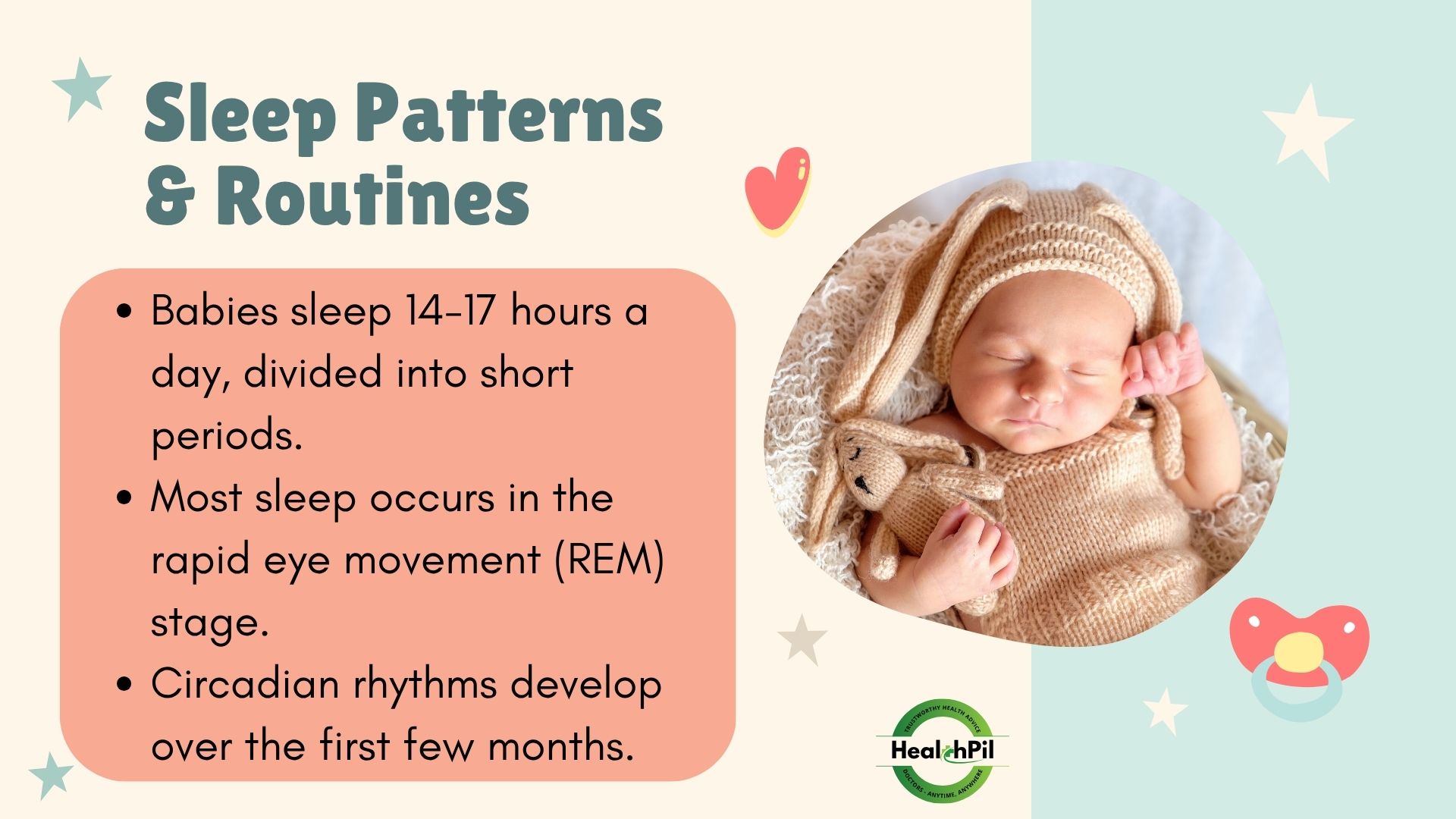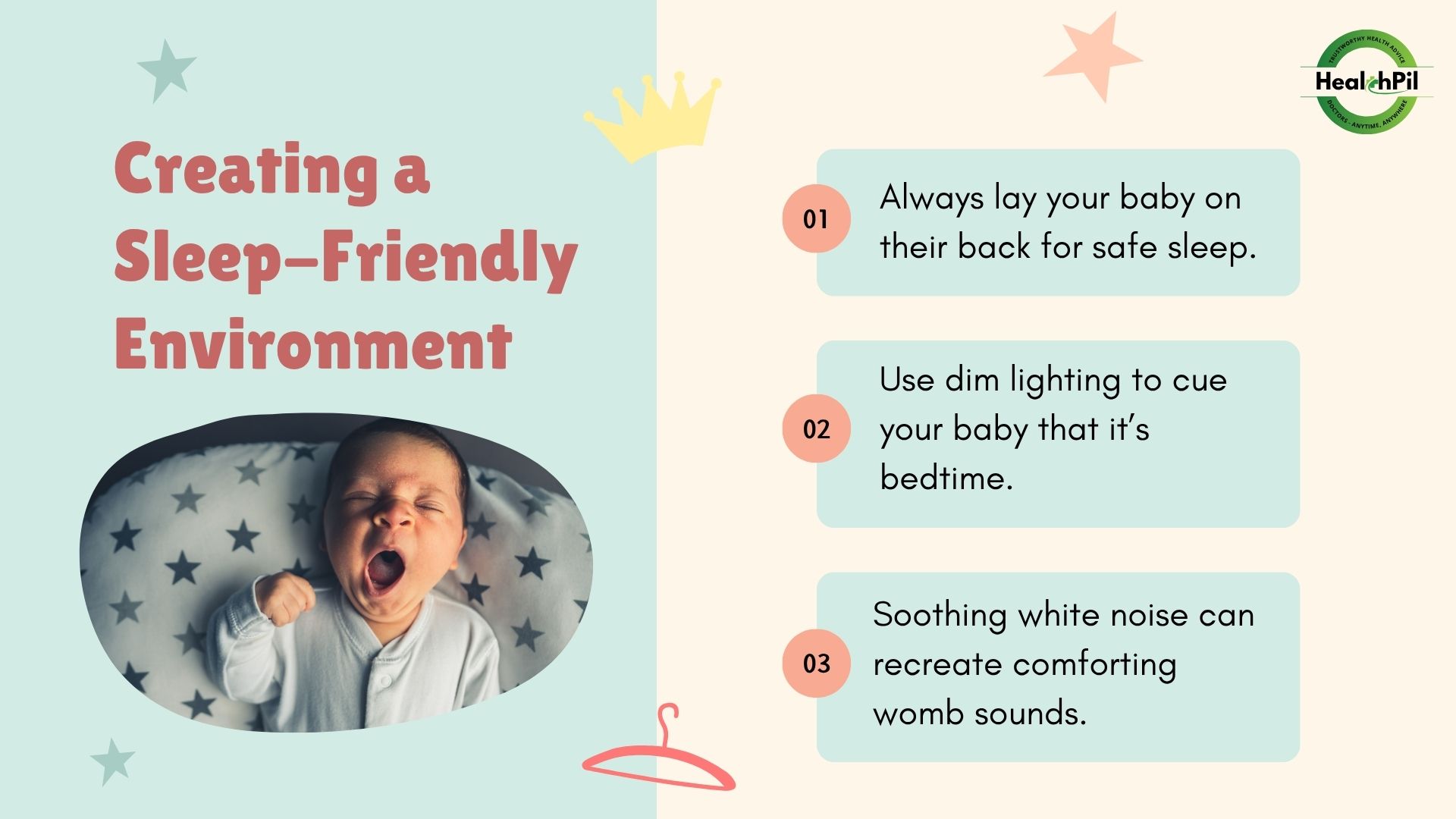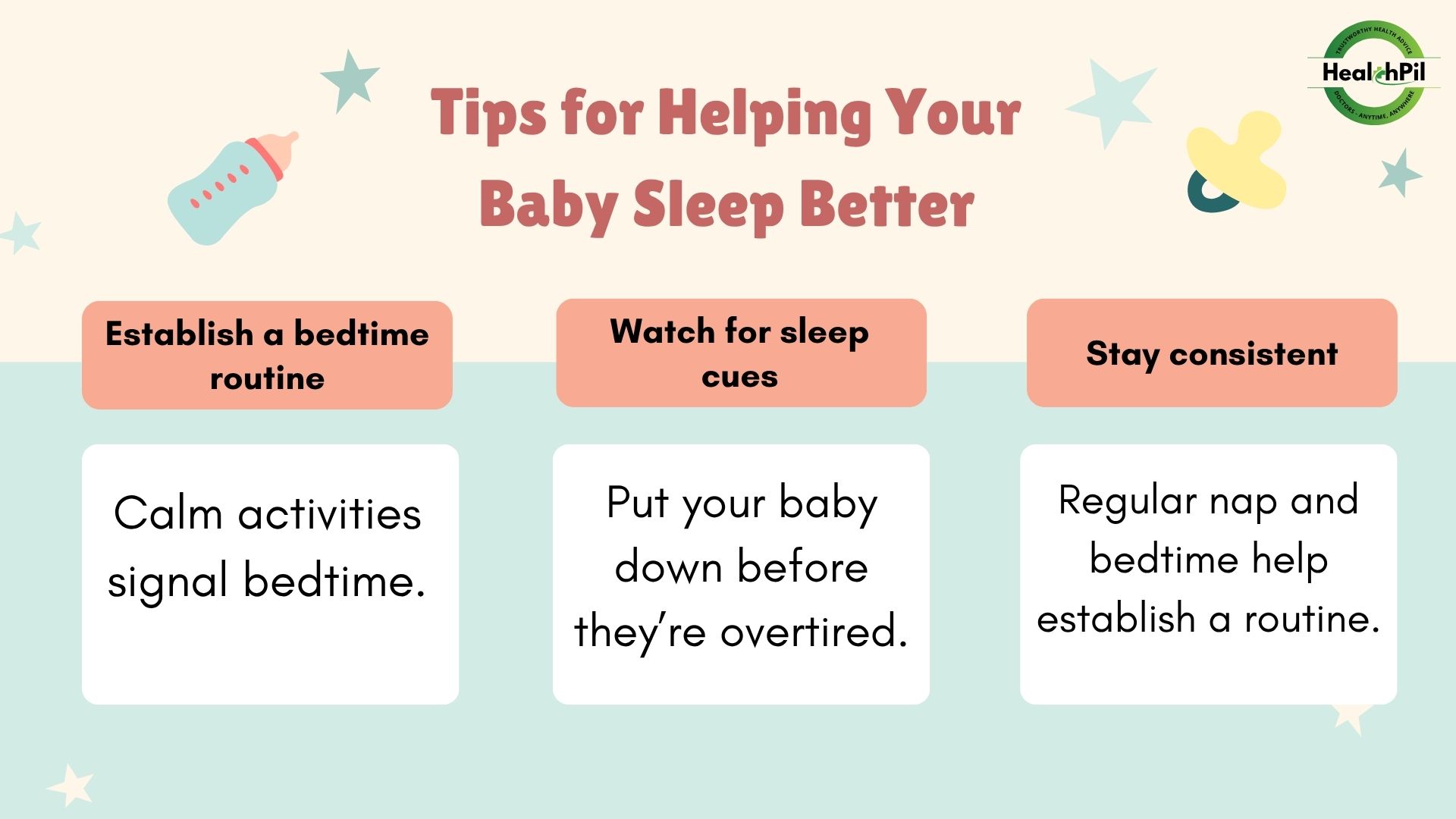






Understanding Newborn Sleep Patterns and Tips for New Parents
Understanding your newborn’s sleep patterns is essential for new parents. Sleep is extremely important for your baby’s development, and knowing what to expect can help you navigate the early days with more confidence. In this article we will discuss newborn sleep patterns and provides practical tips for managing your baby’s sleep.
Newborn Sleep Patterns: What to Expect
● Newborns typically sleep for about 14-17 hours a day, but their sleep is divided into shorter periods, often lasting 2-4 hours.
● Babies experience rapid eye movement (REM) sleep, which is crucial for brain development. Most of their sleep occurs in this stage.
● At first, newborns don’t have a regular sleep-wake cycle, which means they sleep and wake up at all sorts of unpredictable times. Their circadian rhythms start to develop over the first few months.
Creating a Sleep-Friendly Environment
1. Safe Sleep Practices:
● Always place your baby on their back to sleep to reduce the risk of Sudden Infant Death Syndrome (SIDS).
● Use a firm mattress with no soft bedding, pillows, or toys in the crib.
2. Dim Lighting:
● Keep the sleeping area dimly lit during nighttime feedings to signal to your baby that it’s still time to sleep.
3. White Noise:
● Consider using a white noise machine to create a soothing sound environment that mimics the womb.
Tips for Helping Your Baby Sleep Better
● Create a calming bedtime routine to signal to your baby that it’s time to sleep. This can include activities like bathing, reading, or gentle rocking.
● Pay attention to your baby’s sleep cues, such as yawning or rubbing their eyes. This can help you put them to sleep before they become overtired.
● Consistency is key when it comes to your baby’s sleep routine. By putting your baby down for naps and bedtime at the same times every day, you’re helping them establish a routine.
● Understand that newborns may have varying sleep needs, and flexibility is essential. Some days your baby may sleep more than others.
● Don’t hesitate to ask for help from family or friends. Sharing nighttime duties can help reduce fatigue and stress.
Frequently Asked Questions
How long do newborns sleep at a time?
Newborns typically sleep for 2-4 hours at a time before waking for feedings.
When will my baby start sleeping longer stretches?
Many babies begin to sleep longer stretches at around 3-6 months of age.
Is it normal for my baby to have irregular sleep patterns?
Yes, irregular sleep patterns are common in newborns as they adjust to their new environment.
What should I do if my baby won’t sleep?
Try soothing techniques, such as swaddling, rocking, or feeding, and ensure they are comfortable and safe.
How can I ensure my baby sleeps safely?
Always place your baby on their back to sleep, use a firm mattress, and avoid soft bedding.
Conclusion
Understanding newborn sleep patterns is crucial for new parents navigating the early days of parenthood. By creating a safe sleep environment and establishing a consistent bedtime routine, parents can help their babies develop healthy sleep habits. Remember to be patient and flexible as your newborn adjusts to their new world.
Disclaimer
The information provided in this article is for awareness purposes only and should not replace professional medical advice. Always consult your healthcare provider for personalized medical guidance.
How HealthPil can help?
HealthPil Is Always Here for YOU!
● Need Guidance? Connect with healthcare experts ready to help you navigate gestational diabetes.
● Join Our Community: Gain access to tips, resources, and support from mothers just like you!
● Don’t Delay—Take Action! Your health and your baby’s future are too important to wait!
Contact HealthPil today and empower your pregnancy journey!
